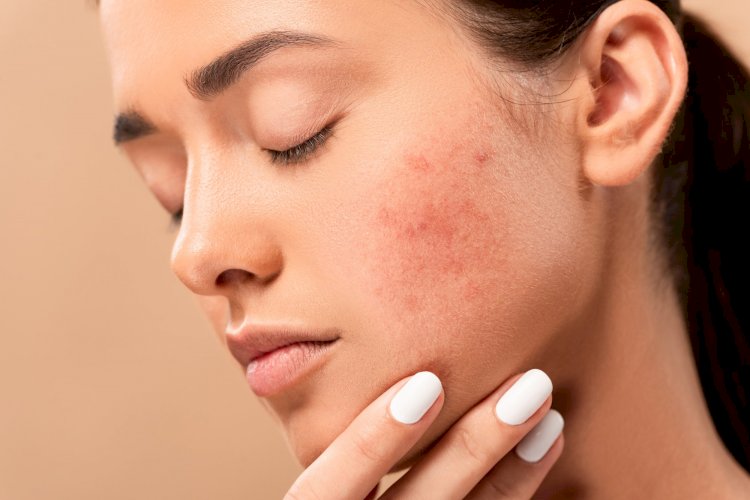With This Report, We Underline The Dermatologist's Tips For Acne Scars
Acne scars can affect your confidence. So, the best way is to find effective treatment with the help of a dermatologist. What are the options available?

Are You Worried About Those Acne Scars?
You have the scars to prove that you have battled breakouts. The marks left behind can serve as a lasting reminder of the emotional trauma and confidence hit that acne can cause as blemishes can be distressing enough. Your dermatologist may have seen it quite many times as she completely understands and also has been there herself. Ready to help clear your skin, minimise scars and restore your hope and confidence, she is standing by.
There’s a difference between a true scar and a temporary mark after acne before we talk about scars. Are they indented or are they just discoloured when we are concerned about the marks?
A true post-acne scar is characterised by an irregularity in the surface texture of the skin regardless of your skin type. All are indented and appear a bit like pockmarks as derms often call these ice pick scars, rolling scars, or boxcar scars. Its just the pink or dark mark that acne has left behind called post-inflammatory hyperpigmentation (PIH), if the skin is smooth with no textural change, it’s probably not a scar. Being temporary and reversible, these spots will gradually fade with time. As everyday exposure to UV light can keep marks discoloured for much longer, its important to wear sunscreen consistently for every skin tone.
They may never go away on their own as they typically cannot be removed entirely if your scars are true scars. There are many things you can do to improve the skin after you have suffered from acne as the good news is whether you are dealing with marks or scars.
Over-the-counter creams marketed as scar treatments are typically not helpful according to dermatologists. The reason is that not backed by significant research are these scar creams. A type of scar that can be tricky to treat, acne has scars tending to be indented. According to decades of scientific study what works better is the following:
Gradually alleviating scars by evening out skin tone improving the turnover of skin cells and building new collagen and elastin is a retinoid cream or gel derived from vitamin A. Adapalene, tretinoin, as well as Tazorac, help clear the condition. Often with a plain moisturiser on top to soothe the skin, these medicines have the potential to cause dryness, peeling, and irritation, which is why only a thin layer is recommended at bedtime. Due to increased sun sensitivity and because the product can be deactivated by sunlight, it is important to use these only at night.
According to a recent study of 67 patients followed for 6 months, published in the American Journal of Clinical Dermatology, combining benzoyl peroxide to adapalene can significantly reduce scars and blemishes. Available as prescription gels called Epiduo or Epiduo Forte is this combination of medicines. Using OTC adapalene applied with an OTC benzoyl peroxide cream a milder version could be created at home.
Since it bleaches fabric and can cause irritation, dermatologists recommend these products applied sparingly in the evening and taking caution with benzoyl peroxide.
Procedures for Scars (often not necessary for marks)
It makes sense to seek the care of a dermatologist to guide you through the options since several procedures can help to minimise acne scars. Be warned its unlikely that your insurance will cover them as a series of treatments is almost always necessary.
Lasers
Your dermatologist may suggest laser therapy to reduce redness, resurface the skin, or promote new collagen and elastin production depending on your skin type and the appearance of any scars. Here the options available are pulsed dye laser, picosecond laser, fractionated lasers, or the aggressive but highly-effective carbon dioxide laser.
Injections
Flattening thick, itchy, or ropy scars are tiny injections of steroid medicine that helps to thin. To plump them temporarily evening out the skin’s surface are gels called filler that can be injected directly into indented scars. Finally, your dermatologist may recommend polymethyl methacrylate as well as hyaluronic acid filler.
Surgical Methods
In this scenario punch biopsies, dermabrasion, or subcision are performed by the physicians.
Microneedling
Microneedling may gradually lessen acne scars over a series of treatments, by creating tiny pinprick wounds to promote skin healing. Since infection and other adverse events are possible, it’s a good idea to have this procedure performed in a physician’s office. Whereas they are unlikely to penetrate deep enough to improve scars, the light micro-needling and derma roller treatments are done at home can exfoliate the skin leaving it feeling nice.
Concluding The Discussion Here
Because it can be hard to see improvement if new blemishes keep forming, whether you are dealing with marks or scars, prevention is important. If over-the-counter therapies aren’t enough, a dermatologist can help design a treatment regimen. Since manipulating the skin can increase the risk of scarring when acne does pop up avoid picking or popping pimples.
What's Your Reaction?





















